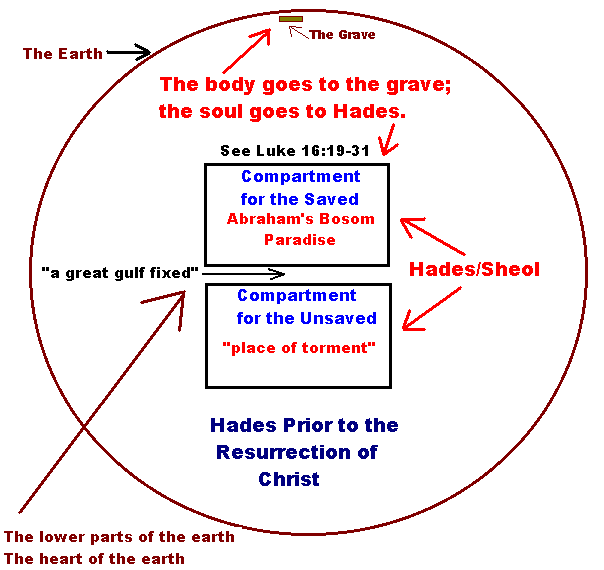CadyandZoe
Well-Known Member
It seems to me that during the time of the New Testament, the Apostles referred to Jerusalem as Babylon. 1 Peter 5:13. Also at that time, Jesus and Stephan were critical of Jerusalem (and her leaders) for her idolatry. Acts 7:43Unpacking what Paul says here, we can see a clear distinction between those who repent and those who do not. Jehovah’s justice is completely perfect, so whatever judgment he gives to each one is based on his assessment of their actions, not just their words.
The “wrath and indignation” suffered by the wicked does not have to be protracted or to wait for a second judgment in “hell”.
When a wicked man broke God’s law, punishment involved the death penalty. Mercy was extended if there were mitigating circumstances but by and large, the death sentence was carried out, usually by stoning.
No law of God involved prolonged suffering or incarceration as a penalty. Even when a man was stoned, a direct hit to the temple usually meant a quick death. We saw that with David’s encounter with Goliath.
Since any kind of tribulation or distress involves the victim being fully conscious, this must occur whilst they are living. The dead cannot suffer. (Ecclesiastes 9:5, 10)
Are the wicked spared suffering in this world? They are usually the ones inflicting the suffering unless the law of the land catches up with them. Languishing in prison cannot be a picnic for anyone.....it would be akin to living in a snake pit.....but it isn’t God who causes that situation. Various countries have their own ways of dealing with hardened criminals....and the death penalty has various methods of implementation in some countries....beheading, hanging, lethal injection or firing squad.
So if ‘God does not take pleasure in the death of the wicked’, then why would he take pleasure in their suffering? It serves no purpose. It is their elimination from existence that serves God’s purpose....never again to interfere with His plans for the future.
When God brings vengeance on those who have opposed him and his son, it will mean going into “the lake of fire” which is what “Gehenna” is.....for those he has consigned to “Gehenna”...there is no consciousness and hence no suffering.....eternal death is a just punishment, meaning that these will never live again.
When the final battle is fought, and those bound for “Gehenna” realise what is in store for them, that will be the time when “the weeping and gnashing of teeth” will take place.
God will have destroyed “Babylon the great” as the opening part of “the great tribulation”. If you know what “Babylon the great” is, you will understand why people will be angry that they were misled by satan who was the creator of this spiritual adulteress....this disgusting harlot. We are told to “get out of her”. (Rev 18:4-5) How do we do that?
What are your thoughts about it? Who or what, is “Babylon the great”?
Apparently, during the Babylonian exile, some of the Hebrews adopted many of the Babylonian religious practices and beliefs and upon return from Exile, some of them never repented of their idolatry. And many of the idolaters gained power and influence in society during that time. Stephen specifically mentions the worship of Molech.
From that point forward, the term "Babylon" referred to a city known for the practice of idolatry. In my view, Vatican City took the place of Jerusalem as Babylon the Great City.
Who knows what city has taken its place today?
The call to "come out of her" has always been appropriate because it is a call to repentance from idolatry. One could argue that the Protestant Reformation marked a significant time of "coming out of her." An attempt was made to purge idolatry from Christianity and to return to the apostolic faith. The reformers didn't go far enough but they at least made the attempt.
But the call to "come out of her" is also a call to physically leave the great city because God will ultimately destroy the city someday. The Great City Babylon is the city which believes and practices the religion of Babylon and adopts her perspective and preferences. The Great city continues to practice the worship of Molech, for instance. Some time in our future, the Great City will be destroyed.
As I look around today, I can't help thinking that "Jerusalem" and "Vatican City" are the twin towers of Babylon. I put these cities in quotes because it isn't so much a matter of a place as it is a matter of an occultic belief system, which has infiltrated the Abrahamic Religions and exercise power from those vantage points. Christians today need to come out of any and all forms of organized religion, meet in house churches and return to the apostolic faith as much as possible. And they need to reject all forms of idolatry wherever it might be found.
I apologize for the long answer.




